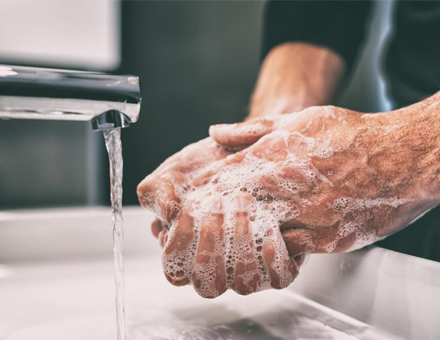Types of germs like viruses, bacteria, and other microbes are everywhere around us. You can find germs on your body, in the air, on the food you eat, and on the surfaces you touch. While many germs are relatively harmless, some viruses can cause harmful and serious infection and disease.
Even though germs are too small to see with the naked eye, you can still take action to protect yourself and stop the spread of viral infections. Ulin Sargeant, MD, offers expert care at Monrovia Internal Medicine & Primary Care in Duarte, California. Here’s what Dr. Sargeant wants her patients know about viruses work and how to defend against them.
Microscopic invaders
Viruses are much smaller than your body’s cells and are debatably alive. Viruses encapsulate genetic material that can invade and take control of your body’s cells, potentially destroying or damaging them. While COVID-19 is in the forefront of people’s minds today, some other examples of viruses include the common cold, chickenpox, influenza, and human immunodeficiency virus (HIV).
Viruses can cause both infection and disease, distinct steps of cellular breakdown. You have a viral infection when the microbes enter your body and begin to replicate, increasing in number. If this process continues, you may develop full-fledged disease as the damage in your body builds up, often causing uncomfortable or distressing symptoms.
Your body has natural defenses against viruses in your immune system. White blood cells and antibodies work to repel invading viruses and protect your health. However, it’s still a good idea to give your immune system extra support in its battle against viruses — especially because doctors can’t treat diseases caused by viruses with antibiotics; these medications are specifically designed to work against bacterial germs.
How to protect yourself
Viral particles can travel through the air, be passed through interpersonal contact, or even remain on surfaces after they’ve been touched. In order to prevent viral infections and diseases, follow these tips:
- Wash your hands regularly and thoroughly, especially before food prep, before and after eating, and after using the bathroom
- Use soap while washing to destroy the exterior of the virus, or substitute an alcohol-based hand-sanitizing gel if you don’t have access to hand-washing facilities
- Frequently clean surfaces at home and at work, paying particular attention to areas that you frequently touch — i.e., door knobs, cellphones, food preparation areas, bathrooms
- If you come into contact with someone you know is sick, avoid touching or sharing contaminated objects; you can also use protective gear like a mask and gloves
- Research available vaccinations that could give you lasting immunity against specific types of viruses; for example, an annual flu shot is the best way to protect against seasonal flu
For some specific viruses, medications may be available to increase your immunity, such as anti-malaria medications.
If you’re concerned about viral infection or disease, contact Monrovia Internal Medicine & Primary Care. Schedule an appointment with Dr. Sargeant through our virtual office with the convenience of our online booking tool.


